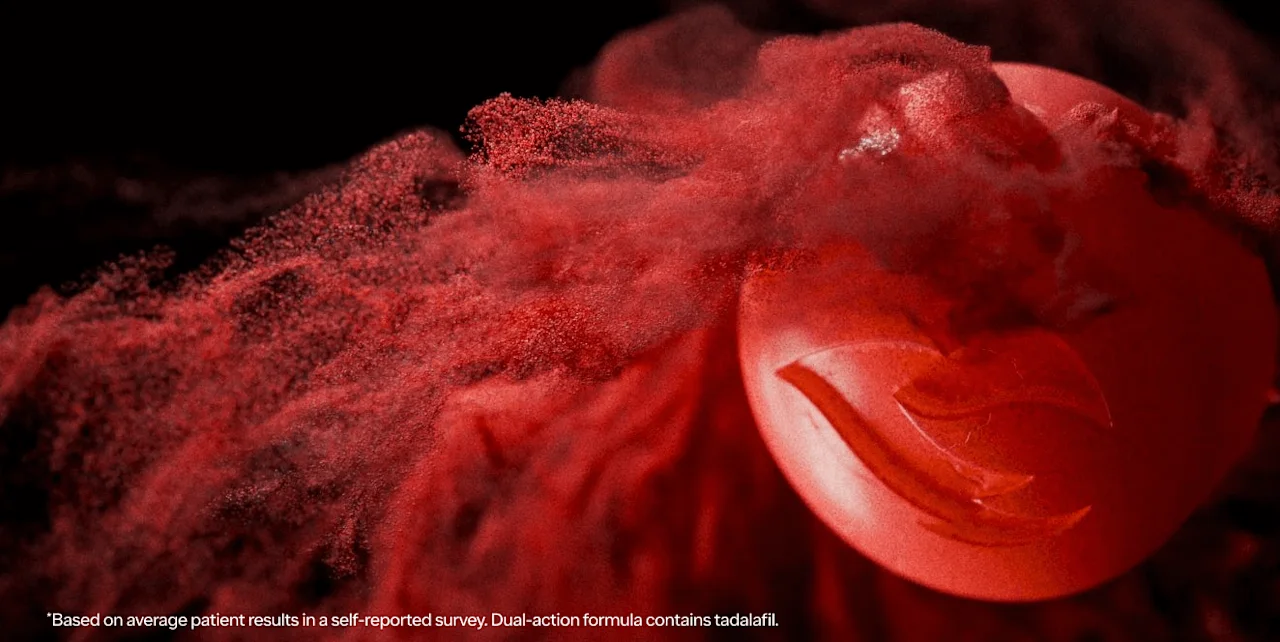Here's what we'll cover
Here's what we'll cover
Here's what we'll cover
DHEA, or dehydroepiandrosterone, is a hormone that's naturally produced by the body in the adrenal glands and, to a lesser extent, in the testes/ovaries. It is a precursor to male and female sex hormones like androgens and estrogens. DHEA is one of the most abundant circulating steroids in humans––until it's not. Research estimates that people have the highest levels of DHEA when they're in their 20s, then hormone levels take a dive (Neunzig, 2014).
Once you have a few decades under your belt, you may start to consider an alternative source of DHEA: dietary supplements. But it can be difficult or impossible to decide which, if any, of the many over-the-counter options is right for you. And it's always important to remember that just because something is available over the counter doesn't mean it can't hurt you.
DHEA side effects
Most side effects of DHEA supplements are mild; people might experience acne or stomach upset. Women may notice changes in their menstrual cycles, abnormal hair growth, or a deeper voice with DHEA supplements, while men sometimes note breast pain or enlargement. If you are pregnant or breast-feeding, you should avoid taking DHEA supplements because they can lead to higher than normal levels of androgens (male hormones) and may affect fetal development (NIH, 2020).
DHEA interactions
Since DHEA gets converted to other hormones, its levels can affect your body's overall hormone balance. If you take medications that also affect your hormone levels, DHEA supplements can disrupt these drugs' actions and their intended effects. Other medications, when taken with DHEA, may increase the risk of side effects. Check with your healthcare provider if you're taking other medicines, including other over-the-counter supplements. Some of the medications that you should avoid taking with DHEA supplements include (NIH, 2020):
Drugs that decrease estrogen levels: Some chemotherapy drugs for post-menopausal women with breast cancer work to lower estrogen levels in the body, including anastrozole (Arimidex) and exemestane (brand name Aromasin). Since DHEA is a precursor for estrogen, it can increase estrogen levels, potentially making anastrozole and exemestane less effective.
Drugs used to treat estrogen-sensitive cancers: Fulvestrant (brand name Faslodex), letrozole (brand name Femara), and tamoxifen (Nolvadex) are medications used to treat estrogen-sensitive cancers, like breast cancer. As the name implies, estrogen-sensitive cancers are affected by estrogen levels in the body. DHEA might increase the amount of estrogen in the body and decrease the effectiveness of these medications.
Estrogen or testosterone: Since DHEA is converted into estrogen and testosterone, using it with hormone supplementation could cause your levels to be higher than expected and lead to more side effects.
Antidepressant drugs: Many medications used to treat depression act by increasing serotonin levels, a brain chemical (neurotransmitter) important in mental health and mood disorders. DHEA may also raise serotonin levels. Taking DHEA with particular antidepressants could potentially elevate serotonin to dangerous levels and yield serious side effects like serotonin syndrome (heart problems, muscle twitching, high blood pressure, agitation, etc.). Be sure to tell your healthcare provider before starting DHEA supplements if you are taking antidepressants like sertraline (brand name Zoloft), fluoxetine (brand name Prozac), paroxetine (brand name Paxil), citalopram (brand name Celexa), duloxetine (brand name Cymbalta), amitriptyline (brand name Elavil), or imipramine (brand name Tofranil), among others.
Blood-thinning (anticoagulant) drugs: DHEA may affect how your platelets clump together, leading to a slowing in your blood clotting ability and increasing your chances of bruising and bleeding. For this reason, you should avoid taking other blood-thinning medicines (anticoagulants), like aspirin, ibuprofen (brand name Advil, Motrin, etc.), naproxen, clopidogrel (brand name Plavix), diclofenac (brand name Voltaren), warfarin (brand name Coumadin), heparin, rivaroxaban (brand name Xarelto), apixaban (brand name Eliquis), among others (PDR, n.d.). Certain herbs can also slow blood clotting and should be used with caution if you take DHEA; these include angelica, clove, danshen, garlic, ginger, ginkgo, and Panax ginseng (NIH, 2020).
Triazolam (brand name Halcion): DHEA may decrease how quickly your body breaks down triazolam, a benzodiazepine used to treat insomnia. This can lead to more prolonged drug action and an increased risk of side effects like sedation (sleepiness).
Insulin and other medications to treat diabetes: DHEA may cause changes in how your body reacts to insulin or how it regulates your blood sugar levels. Because of this, people with diabetes should be careful when taking DHEA. If you are also taking other diabetic medications like metformin, glipizide, glyburide, or other antidiabetic medicines, let your healthcare provider know and be sure to monitor your blood glucose levels carefully (PDR, n.d.).
This list does not represent all possible drug interactions with DHEA supplements. Talk to your healthcare professional or pharmacist if you have additional questions.
DHEA supplements
As explained earlier, the body naturally produces DHEA but levels peak in early adulthood and gradually diminish over time. In the United States, DHEA is an over-the-counter supplement and a prescription vaginal insert called prasterone (brand name Intrarosa) (FDA, 2016).
An important caveat to share is that DHEA supplements, like all supplements, are not regulated by the Food and Drug Administration (FDA) with the same rigid quality control standards as medications. Therefore, the purity, potency, efficacy, and safety of supplements may vary among manufacturers (FDA, 2019). The FDA suggests the following to help consumers protect themselves (FDA, 2019):
Always read product labels and follow directions.
Natural doesn't always mean a product is safe for humans.
Look for products that include USP after the ingredient name; this means that the manufacturer followed the US Pharmacopoeia standards.
Supplements made or sold by a nationally known food or drug company are more likely to be made under tight controls.
Write to the company if looking for more information about how the product was made.
Best DHEA supplement
There is no best DHEA supplement; there is little scientific data that compared different DHEA supplements to each other.
At this time, there is only one FDA-approved formulation of DHEA: prasterone (brand name Intrarosa). Prasterone is another name for DHEA, and Intrarosa is a vaginal insert for post-menopausal women dealing with vaginal thinning and pain during sex. It is not an oral supplement (FDA, 2016).
Work with your healthcare provider to uncover why you're considering DHEA and which product is right for you.
DHEA benefits
Over the years, various claims have been made regarding the potential health benefits of DHEA, such as anti-aging and improving mood disorders, cognitive function, muscle strength, and sexual function. DHEA has also been touted to treat adrenal insufficiency, osteoporosis, and vaginal atrophy (thinning).
Before starting a DHEA supplement, talk to your healthcare provider to discuss the potential benefits.
DHEA for men
DHEA naturally produces male and female sex hormones within the body, and it plays an essential role in the development of men during puberty—think oily skin, acne, etc. Later in life, as DHEA levels go down, many men may turn to DHEA supplements to boost their testosterone levels—however, there is limited scientific data to support this use of DHEA (NIH, 2020).
Additional research is needed to support the benefits of DHEA supplementation for men.
DHEA for erectile dysfunction
Erectile dysfunction (ED) occurs when a man can't get or maintain an erection sufficient for satisfying sex. Several small studies have suggested that DHEA can help improve ED in men, but there's been just as much research published that goes against the potential link.
A study published in Urology looked at a small group of men with ED who were assigned a daily DHEA supplement or placebo pill for six months. At the end of the study, the men treated with DHEA supplements experienced a clinically significant improvement in their ability to achieve or maintain an erection, but there was no impact on testosterone levels (Reiter, 1999).
In an effort to learn more about DHEA's effect on sexual function, a 2017 systematic review studied 38 clinical studies that utilized DHEA in the setting of sexual problems. Researchers found that DHEA improved sexual interest, lubrication, pain, arousal, orgasm, and sexual frequency among people with sexual dysfunction. However, perimenopausal and postmenopausal women had the highest observed benefit (Peixoto, 2017).
It is important to note that DHEA isn't as effective for managing erectile dysfunction if the condition is caused by diabetes or nerve disorders (NIH, 2020).
DHEA for women
DHEA treatment has been studied for various women's health issues, often related to menopausal symptoms.
One of the better-proven uses for DHEA supplements is to treat vaginal atrophy, a condition that occurs when the vaginal walls become thinner after menopause (Labrie, 2016). Usually happening around age 50, menopause is a woman's natural decline in reproductive hormones. This change in hormones can lead to vaginal dryness or inflammation of the vaginal walls and pain during sexual intercourse, as well as other symptoms.
If you're experiencing vaginal atrophy, consider discussing prescription DHEA vaginal inserts with your healthcare provider. A prasterone (brand name Intrarosa) insert can reduce pain during sex in women after menopause (FDA, 2016).
Another possible use for women is to help with the aging process of the skin. Some research suggests that applying DHEA to the skin might improve skin appearance in women after menopause (El-Alfy, 2010).
Lastly, some research suggests that DHEA may help with osteoporosis, a decrease in bone mineral density that occurs in older adults, especially women after menopause. However, there is not enough evidence to recommend using DHEA to improve bone density (NIH, 2020).
DHEA for immune function
Little evidence exists with regards to the effects of DHEA on immune function. DHEA has been tested in a few immune diseases, but the results have not been very promising. For example, DHEA is likely ineffective for treating Sjogren syndrome, an autoimmune disease that causes dry eyes and mouth (Hartkamp, 2008). There is not enough data to determine the effectiveness of DHEA for other autoimmune diseases like systemic lupus erythematosus, ulcerative colitis, and Crohn's disease (NIH, 2020).
DHEA for obesity
In general, the consensus is that more research is required in human subjects to identify a concrete association between DHEA and obesity.
One study looked at how DHEA affects the development of obesity in rats; results showed that rats who received DHEA were protected against abdominal fat accumulation and the development of muscle insulin resistance (Hansen, 1997).
A small study followed healthy men and women in their mid-60s to 70s, who received 50 mg of DHEA per day or a placebo. At the end of six months, the DHEA group lost a few pounds of harmful abdominal fat (visceral fat) and improved insulin sensitivity (Villareal, 2004). However, other research shows conflicting results and suggests that DHEA supplements are not particularly useful for treating obesity (Jedrzejuk, 2003). So far, research does not support the claim that DHEA helps with weight loss (NIH, 2020).
Conclusion
Right now, there are countless DHEA products marketed for just as many health conditions and supposed benefits. Although supplements can be beneficial for certain people, they can also lead to problems when taken without proper education. Consult your healthcare provider for medical advice before starting DHEA supplements to avoid potential side effects or complications.
DISCLAIMER
If you have any medical questions or concerns, please talk to your healthcare provider. The articles on Health Guide are underpinned by peer-reviewed research and information drawn from medical societies and governmental agencies. However, they are not a substitute for professional medical advice, diagnosis, or treatment.
Sertraline Important Safety Information: Read more about serious warnings and safety info.
References
El-Alfy, M., Deloche, C., Azzi, L. (2010). Skin responses to topical dehydroepiandrosterone: implications in antiageing treatment? British Journal of Dermatology, 163 (5), 968-76 . doi:10.1111/j.1365-2133.2010.09972. Retrieved from https://pubmed.ncbi.nlm.nih.gov/20698844/
Hansen, P. A., Han, D. H., Nolte, L. A., Chen, M., & Holloszy, J. O. (1997). DHEA protects against visceral obesity and muscle insulin resistance in rats fed a high-fat diet. The American Journal of Physiology, 273 (5), R1704-8. doi: 10.1152/ajpregu.1997.273.5.R1704. Retrieved from https://pubmed.ncbi.nlm.nih.gov/9374813/
Hartkamp, A., Greenen, R., Godaert, G.L.R., Bootsma, H., Kruize, A.A., Bijlsma, J.W.J., Derksen, R.H.W.M. (2008). Effect of dehydroepiandrosterone administration on fatigue, well-being, and functioning in women with primary Sjögren syndrome: a randomised controlled trial. Annals of the Rheumatic Diseases, 67 (1), 91-7. doi: 10.1136/ard.2007.071563. Retrieved from https://pubmed.ncbi.nlm.nih.gov/17545193/
Jedrzejuk, D., Medras, M., Milewicz, A., & Demissie, M. (2003). Dehydroepiandrosterone replacement in healthy men with age-related decline of DHEA-S: effects on fat distribution, insulin sensitivity and lipid metabolism. The Aging Male, 6 (3), 151–156. Retrieved from https://pubmed.ncbi.nlm.nih.gov/14628495/
Labrie, F., Archer, D.F., Koltun, W., Vachon, A., Young, D., Frenette, L., Portman, D., Montesino, M., Côté , I., Parent, J., Lavoie, L., Beauregard, A., Martel, C., Vaillancourt, M., Balser, J., Moyneur, É . (2016). Efficacy of intravaginal dehydroepiandrosterone (DHEA) on moderate to severe dyspareunia and vaginal dryness, symptoms of vulvovaginal atrophy, and of the genitourinary syndrome of menopause. Menopause, 23 (3), 243-56. doi: 10.1097/GME.0000000000000571. Retrieved from https://pubmed.ncbi.nlm.nih.gov/ 26731686 /
National Institutes of Health (NIH). (2020). DHEA. Retrieved on 27 October 2020 from https://medlineplus.gov/druginfo/natural/331.html#DrugInteractions
Neunzig, J., Bernhardt, R. (2014). Dehydroepiandrosterone sulfate (DHEAS) stimulates the first Step in the biosynthesis of steroid hormones. Plos One. doi: 10.1371/journal.pone.0089727. Retrieved from https://journals.plos.org/plosone/article?id=10.1371/journal.pone.0089727
Peixoto, C., Carrilho, C. G., Barros, J. A., Ribeiro, T. T., Silva, L. M., Nardi, A. E., Cardoso, A., & Veras, A. B. (2017). The effects of dehydroepiandrosterone on sexual function: a systematic review. Climacteric: The Journal of the International Menopause Society, 20 (2),129-137. doi: 10.1080/13697137.2017.1279141. Retrieved from https://pubmed.ncbi.nlm.nih.gov/28118059/
Peixoto, C., Devicari Cheda, J. N., Nardi, A. E., Veras, A. B., & Cardoso, A. (2014). The effects of dehydroepiandrosterone (DHEA) in the treatment of depression and depressive symptoms in other psychiatric and medical illnesses: a systematic review. Current Drug Targets, 15 (9). https://doi.org/10.2174/1389450115666140717111116 . Retrieved from https://pubmed.ncbi.nlm.nih.gov/25039497/
Prescribers Digital Reference (PDR) - Prasterone insert - Drug Summary (n.d.). Retrieved on 27 October 2020 from https://www.pdr.net/drug-summary/Intrarosa-prasterone-insert-24099
Reiter, W.J. Pycha, A. Schatzl, G. Gruber, D.M. (1999). Dehydroepiandrosterone in the treatment of erectile dysfunction: a prospective, double-blind, randomized, placebo-controlled study. Urology, 53 (3), P590-594. doi: 10.1016/S0090-4295(98)00571-8. Retrieved from https://www.goldjournal.net/article/S0090-4295(98)00571-8/fulltext
U.S. Food and Drug Administration (FDA). (2016). FDA approves Intrarosa for postmenopausal women experiencing pain during sex. Retrieved on 27 October 2020 from https://www.fda.gov/news-events/press-announcements/fda-approves-intrarosa-postmenopausal-women-experiencing-pain-during-sex
U.S. Food and Drug Administration (FDA). (2019). Questions and answers on dietary supplements. Retrieved on 27 October 2020 from https://www.fda.gov/food/information-consumers-using-dietary-supplements/questions-and-answers-dietary-supplements
Villareal, D. T., & Holloszy, J. O. (2004). Effect of DHEA on abdominal fat and insulin action in elderly women and men: a randomized controlled trial. JAMA, 292 (18), 2243-8. doi: 10.1001/jama.292.18.2243. Retrieved from https://pubmed.ncbi.nlm.nih.gov/15536111/











